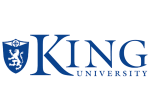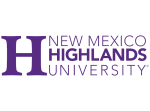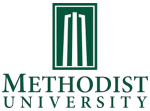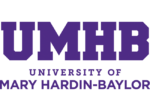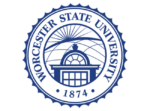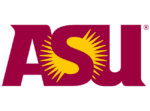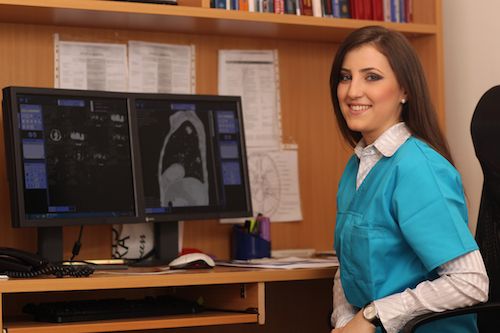 One of the great things about nursing is that there are many options to suit the many different personalities who may be interested in helping their communities in this selfless and thoughtful career. Explore online MSN programs if you seek to advance your career in professional care. MSN is short for a master’s of science in nursing degree.
One of the great things about nursing is that there are many options to suit the many different personalities who may be interested in helping their communities in this selfless and thoughtful career. Explore online MSN programs if you seek to advance your career in professional care. MSN is short for a master’s of science in nursing degree.
These online programs are designed for nurses, particularly those who hold a bachelor’s in nursing degree (BSN). Even if you don’t have a BSN, you may still be able to gain admittance to an online MSN program with a valid registered nursing (RN) credential. Through your studies, you’ll gain the leadership skills necessary to move up in your nursing career. As a graduate, you could pursue a career in clinical nursing, management, or education. You’ll be able to take on more of an administrative role in such locations as a hospital, nursing home, care facility, or healthcare institute.
THE CAREER PATH
Being a nurse can mean different things to different professionals. The one shared passion is their love for helping the community. Nurses can be found in nursing homes, doctors offices, hospitals, urgent care centers, emergency rooms, school campuses, the military, and every other aspect of our society.
For many nurses, an MSN degree is an opportunity to advance their career to fit their unique strengths and professional goals. Some advanced nursing positions, such as anesthetists, midwives, and nurse practitioners, even require an MSN degree of nurses before they can be certified for application. An MSN degree can prepare nurses for the responsibilities of specialized careers such as:
- Nursing Administration
- Case Management
- Nursing Education
- Nursing Informatics
- Gerontology
- Pediatrics
As nurses play an integral part in every facet of life, the demand for qualified nurses is expected to soar over the next few years. The United States Department of Labor anticipates at least 16% growth for nurses by 2024. The average wages for nurses can vary greatly, especially for advanced positions. For positions with a master’s degree, the DOL lists nurses as typically making anywhere from $50,000 to $100,000 annually.
Regardless of the path they choose to take, all nursing professionals share one other thing in common—the job is rewarding and fulfilling in various ways. Nurses get to interact with the community on a regular basis, they make an immediate impact on the people that they work with, and there is plenty of job security.
WHO IS THE IDEAL CANDIDATE?
Since careers in nursing are so adaptable, nurses can come from all different backgrounds and still manage to find a path that is unique to their interest and goals. Professionals who wish to succeed as nurses must be passionate about their patients and driven to advance patient services alongside their own career. Nurses must be ready to communicate with a wide range of individuals in diverse settings.
In whatever direction they decide to steer their career in, nurses must be prepared for job duties that include:
- Observing, assessing, diagnosing, and treating patient conditions
- Educating patients and coworkers on the treatment and prevention of conditions
- Staying knowledgeable and researching contemporary nursing science
- Overseeing patient records and other sensitive data
WHAT SHOULD I LOOK FOR?
For nurses that would like to advance their career and take their education one step further to a master’s degree, there are many options. Most nurses pursuing a master’s degree have already received their BSN as well as their license to be a registered nurse (RN). Many nurses like to get some experience under their belt before moving on to an MSN.
However, if you’re a licensed registered nurse, you can enroll in an MSN program without first earning a BSN degree. RN to MSN programs specialize in educating registered nurses who may not hold a formal BSN degree. Your course of study will be more comprehensive than a regular MSN degree, as you will take undergraduate courses before beginning master’s level work.
Chances are, for nurses that are already working, like many working Americans, trying to afford school without working is practically impossible. Online MSN degrees give nurses the option to advance their knowledge and their career without having to worry about quitting their job or letting go of their other responsibilities.
All valid online MSN programs are accredited by either the National League of Nursing Accrediting Commission (NLNAC) or the Commission on Collegiate Nursing Education (CCNE). Make sure your program is accredited before enrolling. After graduating, you can then sit for the American Nurses Association Certification Exam in Nursing Executive, Advanced and/or the Commission for Case Manager Certification Exam.
Expect online MSN programs to include courses in nursing theory and advanced clinical topics. Since MSN nurses often manage clinical and care facilities, your degree will likely include courses in health policy and ethics, advanced nursing practice, advanced nursing in women’s health, cardiology, veterans health care, information technology management, and grant writing. You could—and most likely will—have a practicum at the end of your program.
Online programs each offer different tracks, so make sure your degree lines up with your career goals. Your program may have more of a focus on healthcare education, nurse practitioning, or administration. If you’ve already earned your MSN degree, you could seek a post-master’s certificate in your desired speciality.
COST
Our rankings reveal that an online MSN degree can cost anywhere from $22,000 to $75,000, so nurses should take their time choosing an affordable program that meets their needs. High cost does not necessarily equal high quality education.


